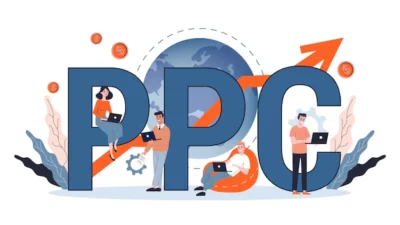Digital Trust is a must-have solution if the current cybersecurity trends are to go by. An APWG Report, in 2022’s second quarter, states that 1,097,811 phishing attacks were recorded as high given their analysis. That’s not problematic enough, as in the third quarter of the same year, there were 1,270,883 phishing attacks. Even worse, August 2022 had 430,141 attacks in just a month alone.
Broken down, it means in that month, there were 14,338 phishing attacks daily, which is pretty severe. These statistics are heart-wrenching for internet users, website owners, and managers. Therefore, organizations should foster digital trust to ensure safe email communications and websites. Remember, data breaches can make you lose your legitimacy to customers as an organization.
It may also serve as a vote of no confidence from your target audience and potential clients—this may even cause substantial business investment losses. For example, imagine customers are shopping in your retail store, receiving a notification on their smartphone that says: “Welcome to our store! Here’s a 10% off coupon for your purchase today.” But they’re unsure if it’s a scam.
As such, they’ll hesitate to use it. That’s where digital trust comes in. If a business has a robust digital trust foundation, customers will feel safe using digital coupons. Thus, digital trust is crucial in today’s digital world for businesses to succeed. Fortunately, through certificate management, you can guarantee your clients’ digital trust and protect your data. We’ll explore more of that in a few.
Understanding What Digital Trust Entails In Digital Online Consumer Marketplace
Society is now digitally connected in a pervasive way, with online interactions foundational to individual and business communication, transactions, and processes. Digital transformation has continued to accelerate in recent years, with remote processes replacing face-to-face interactions, devices, systems, and facilities becoming Internet- or network-connected, and new deployment methods.
Some new technology developments are changing the landscape of IT architecture. In this environment, digital trust is an essential requirement of online operations. Digital trust is what enables individuals and businesses to engage online with confidence that their footprint in a digital world is secure. Eventually, digital trust emanates from society being morally and pervasively upright.
Today, online transactions form the basis of business and individual communication. Processes and commerce are also at the core of digital life. Besides, digital transformation has led to remote connections replacing physical interactions. Most Internet users, devices, facilities, and systems are connected today through networks or the cloud, and all these are shaping the IT landscape.
In such a delicate environment, Digital Trust is paramount. Thus, certificate management is a proven way to guarantee all this. Digital Trust enables businesses and individuals to transact online with confidence and surety that their footprints online are safe. While Private Trust related to Public Key Infrastructure, or PKI, involves digital certificates rooted in a Certificate Authority for business.
Getting To Know How A Digital Trust Certificate Helps Empower Businesses
A Digital Certificate is a file or electronic password that proves the authenticity of a device, server, or user through cryptography and the Public Key Infrastructure (PKI). Digital Certificate Authentication helps organizations ensure that only trusted devices and users can connect to their networks. Certificate authentication helps organizations ensure that only trusted users/devices have access.
It also ensures that users can connect to their networks. Another everyday use of digital certificates is to confirm the authenticity of a website to a web browser, also known as a Secure Sockets Layer (SSL) certificate. Generally speaking, a digital certificate contains identifiable information, such as a user’s name, company, department, and a device’s Internet Protocol (IP) Address or serial number.
The results of a particular survey of more than 1,300 business leaders and 3,000 consumers globally suggest establishing digital trust in products and experiences that leverage AI, digital technologies, and Machine Learning (ML) to deliver services. Notwithstanding, data not only meets consumer expectations but also could promote growth. The research still points to other crucial references.
For instance, it indicates that organizations best positioned to build digital trust are also more likely than others to see annual growth rates of at least 10 percent on their top and bottom lines. However, only a tiny contingent of companies surveyed are set to deliver. The research suggests what these companies are doing differently. Some of them utilize CAs to sign their digital trust certificates.
What Cloud Customers Want And The Certificate Types Helping Foster That
Eventually, most CAs and other third parties enable the certificate to be used to prove the authenticity of a document, for client authentication, or to provide proof of a website’s credentials. With that in mind, it’s worth mentioning that there are three different types of public key certificates: Transport Layer Security (TLS)/SSL certificates, Code Signing Certificates, and Client Certificates.
Most cloud technology users believe that the companies they interact with provide the foundational elements of digital trust, which we define as confidence in an organization to protect consumer data, enact effective Cybersecurity, offer trustworthy AI-powered products and services, and provide transparency around AI and data usage. However, most companies aren’t even well-prepared.
Unfortunately, some computing businesses are not putting themselves in a position to live up to consumers’ expectations either. Be that as it may, consumers report that digital trust truly matters—and many will take their business elsewhere when companies don’t deliver it. At the same time, respondents say it’s vital for companies to have transparency with their digital-trust policies.
In particular, they want transparency about how their data will be used. Nearly half of all respondents frequently consider another alternative business if the one they are considering purchasing from is unclear about how it will use their data. These figures increase among some segments, such as Gen Z. Given an unpredictable digital trust state, there are three digital trust certificates to deploy.
(i). TLS And SSL Certificate
Companies need to provide transparency around their digital-trust policies. As such, a TLS/SSL certificate sits on a server— such as an application, mail, or web server—to ensure private and encrypted communication with its clients. The certificate provides authentication for the server to send and receive encrypted client messages. TLS/SSL certificates exist to be signified by the Hypertext Transfer Protocol Secure (HTTPS) designation at the start of a Uniform Resource Locator (URL) or web address.
It comes in three forms:
- Domain Validated: A quick validation method acceptable for any website. It is cheap to obtain and can be issued in minutes.
- Organization Validated: This provides light business authentication and is ideal for eCommerce stores selling products online.
- Extended Validation: This offers full business authentication, which larger organizations dealing with susceptible data require.
Note: The extended validation model typically helps the financial business sector with the highest authentication, security, and trust.
(ii). Code Signing Certificate
A code signing certificate confirms the authenticity of software or files downloaded online. The developer or publisher signs the software to confirm that it is genuine to users who download it. It helps software providers make their programs available on third-party websites and prove that files have not been tampered with. Let’s say an employee adds a new device to your network.
As such, they introduce a new vulnerability. With so many configurations and platforms, getting everything to play nicely—and safely is often challenging. Be that as it may, with the rapid growth of remote work, it’s more important than ever for businesses to deploy security solutions that protect devices, networks, and users. That’s where the cod signing certificate strategy comes in handy.
(iii). Target User Certificate
In this case, a client certificate is a digital ID that identifies an individual user to another user or machine or one machine to another. A typical example is email delivery methods and messaging application systems. This is where a sender signs a communication digitally, and the recipient verifies its signature. Client certificates can also be used to help users access protected databases.
In the early days of the Internet, digital trust centered on interactions and transactions between users and websites, secured with a Public Key Infrastructure. This technology delivers authentication, encryption, and integrity to digital interaction. With digital transformation expanding the use cases for PKI, trust has become the backbone of security in the connected world.
It’s also worth noting that the digital trust inter-connected certificates delivery systems world hinges on four elements.
They are as follows:
- Industry and technology standards that define what constitutes trust
- Next, there is the compliance and operations that govern the delivery of trust
- Software that provides management of public and private trust within an organization, with centralized visibility and control over digital certificate lifecycles
- Extension of trust through ecosystems, such as across device lifecycles, software supply chains, consortiums, and more.
Remember, the Public Key Infrastructure (PKI) helps secure users, software, servers, devices, digital content, documents, digital rights, identity, and more. You can now protect your entire software supply chain with automated tools, including Software Bills of Materials (SBOM) or using the QR Code Generator for scanning and signing codes. That’s digital trust for the real world.
The Essential Digital Certificate Elements That Help Secure Cloud-Based Businesses
One thing is sure: Consumer faith in cybersecurity, customer data privacy, and responsible Artificial Intelligence (AI) hinges on what companies do today—and establishing this digital trust might lead to business growth. By demonstrating a commitment to digital trust, businesses can establish themselves as reliable partners, strengthening customer bonds and increasing repeat business.
On the one hand, a Digital Certificate is an electronic file tied to a cryptographic key pair for security. It authenticates the identity of a website, individual, organization, user, device, or cloud-based computing server. In other words, a digital certificate is a public key or identity certificate. On the other hand, the certificate contains the subject, the identity piece, and a digital signature.
Markedly, a digital certificate may contain a copy of a public key from the certificate holder, which must be matched to a corresponding private key to verify accuracy. At the same time, individuals, organizations, and websites can often request custom digital certificates. To do so, they provide the information to be validated and a public key through a certificate signing request.
Understandably, digital trust encompasses the physical world beyond just the digital realm. For instance, customers anticipate timely and secure product delivery when ordering their products online stores. However, if the product arrives damaged, the customer’s trust in the business may diminish. Similarly, suppose a mall, stadium, or museum offers a navigation application to users.
Resource Reference: Complexity—And Lack Of Visibility—Puts Digital Trust At Risk
More so to assist visitors with navigating their space, but the application is inaccurate or unreliable. In that case, it can cast doubt on the business as a whole in the eyes of the consumer. In most cases, a TLS/SSL certificate encrypts data between a web server and a web browser, ensuring an attacker cannot intercept website visitors’ data. This increases website security and user trust.
With that in mind, digital certificates ensure the identity and secure encryption of a website, individual, organization, device, user, or server. Furthermore, they are the foundational elements for implementing Public Key Infrastructure (PKI) security. Typically, these digital certificates can secure websites, computing devices, cloud servers, signatures, codes, software systems, emails, etc.
Usually, the digital certificate information is validated by publicly trusted Certificate Authorities (CAs) providers, who sign them to verify the identity of the requesting device or user. The certification helps to authenticate the legality and identity of a specific website. In addition, it can also authenticate an organization, device, user, or individual. But there are other notable benefits.
1. Security
Security is a fundamental component of digital trust. Customers need to know their personal information is safe and secure when interacting with a business online. This means implementing strong security measures to protect against cyber threats, using encryption to safeguard sensitive data, and ensuring that all data is stored securely. By all means, digital certificates encrypt internal and external communications to prevent attackers from intercepting and stealing sensitive data.
2. Transparency
Additionally, transparency is also vital to digital trust. Customers want to know how their data is collected, stored, and used. Businesses must be transparent about their data collection practices and provide clear and concise privacy policies that outline how customer data will be used. Digital certificates provide businesses of all shapes and sizes with the same encryption quality. They are highly scalable, which means they can quickly be issued, revoked, and renewed in seconds, used to secure user devices, and managed through a centralized platform.
3. Authenticity
Digital certificates are crucial to ensuring the authenticity of online communication in the age of widespread cyberattacks. They make sure that users’ messages will always reach their intended recipient—and only reach their intended recipient. TLS/SSL certificates encrypt websites, Secure/Multipurpose Internet Mail Extensions (S/MIME) encrypt email communication, and document-signing certificates can be used for digital document sharing.
4. Reliability
Reliability is another critical component of digital trust. Customers want to know that they can rely on a business to deliver on its promises. This means providing accurate product information, delivering products and services on time, and providing excellent customer service. Only publicly trusted CAs can issue digital certificates. Obtaining one requires rigorous vetting, which ensures hackers or fake organizations cannot trick victims who use a digital certificate.
5. Confidence
Customers expect a seamless and frictionless experience when interacting with a business online. This means providing a user-friendly website or mobile app, ensuring that pages load quickly, and making it easy for customers to complete transactions. To foster a great user experience, a digital certificate confirms that a website is genuine and that documents and emails are authentic. This projects public trust, assuring clients they are dealing with a genuine company that values their security and privacy.
Digital Trust Vs. Public Trust Plus Security Certificates Authentication Steps
Similar to how Digital Trust powers acceptance and adoption of new technologies and engages in online transactions, Public Trust on the Internet is also essential. Regarding Public Key Infrastructure, digital certificates are used on publicly facing websites. On that note, the user can review the certificate in a web browser to determine if the website is authentic and if it’s also legitimate.
As mentioned, the identity and secure encryption of a website, individual, organization, device, user, or server are the foundational elements of why most cloud-based companies and digital online businesses consider implementing Public Key Infrastructure (PKI) security measures. This helps increase trust by providing third-party user validation, device, server, website, individual, or entity.
Remember, the CA organizations often sign digital certificates to prove the authenticity of the individual or organization that issued the request. As such, a CA is responsible for managing domain control verification and verifying that the public key attached to the certificate belongs to the user or organization that requested it. They are essential in the PKI process to secure the Internet traffic.
Resource Reference: How Multi-Factor Authentication (MFA) Powers Business Safety
Therefore, they are an added layer of protection for digital assets. In addition, digital certificates ensure the secure encryption of a website, individual, organization, device, user, or server. Today, when searching for providers, ensure that all web browser versions automatically trust their SSL certificates. May it be Google Chrome, Firefox, Microsoft Edge, Yahoo, Opera Mini, Yandex, Bing, etc.
Sometimes, people use the term identity or public key certificate to mean the digital certificate. Whichever term you use, a digital certificate should have a subject, which is the piece’s identity, and a digital signature. Overall, it’s worth mentioning that the digital certificate management process helps you ensure the credibility of your digital certificate. Today, there are vital steps to consider.
Step #1: Understand The Digital Certificate Management Process
In layman’s language, digital trust involves establishing a solid online reputation, building credibility and transparency, and providing an exceptional customer experience. This includes implementing security measures to protect against cyber threats, being transparent about how customer data is collected and used, and ensuring that all online interactions are seamless and frictionless.
To enumerate, certificate management is a process through which an organization or individual monitors, processes, and executes every step of the certificate’s lifecycle. It could involve issuing digital certificates, renewing, and deploying to endpoints like appliances, devices, or servers. Chiefly, the main reason for certificate management is to ensure services are uninterrupted.
Certificate management can also entail automating tasks like digital certificate issuance and renewal. In other instances, certificate management involves providing real-time data on the state of different network infrastructures. Managing digital certificates ensures that there are no downtimes on your network. By all means, it helps limit interruptions by a significant percentage.
This also helps your network and service users slowly trust you as reliable. By managing your digital certificates, you have wholesome information about your infrastructure regardless of the number of devices on your network. Note that failure to execute your credentials could result in certificate expiration. It could also result in misconfiguration and severe outages on your network.
Step #2: Learn How Digital Trust Impacts Customer Behaviour
Regarding online marketplace hubs, customers who trust a business feel more comfortable sharing their personal information and purchasing online. This trust can be inspired by a business’s strong data protection measures, which make customers more likely to engage with digital marketing and personalized services. Overall, digital trust plays a significant role in shaping consumer behavior.
This includes their willingness to share information and make online purchases. A business’s reputation is significant, and digital trust can affect how people view a brand. If a business has a data breach or other security problem, it can harm the brand’s reputation and make customers less likely to trust it. However, a business may prioritize digital trust and take strong security measures.
As a result, it can enhance its reputation and become known as a reliable and trustworthy provider. Customer loyalty is crucial for long-term business success, and digital trust is critical to building and maintaining that loyalty. When customers trust a business to handle their data responsibly and prioritize their privacy, they are likelier to remain loyal to that business over time.
Step #3: Know The Digital Certificate Management Lifecycle
During the COVID-19 Pandemic, digital trust became even more important as people began relying more on online services. Businesses that don’t establish digital trust risk losing customers and missing out on growth opportunities. Digital certificates also expire and need continuous management. A complete lifecycle management of a digital certificate starts with generating a certificate.
Or, you could buy a digital certificate from a certificate authority. Once you have purchased or generated the certificate, it’s time to check which certificate is well installed and which is under the proper implementation. After installing the certificate, you must monitor it to ensure you have stored it accordingly. Monitoring also helps you ensure you don’t keep expired certificates.
Remember to validate the certificate’s legitimacy with your certificate authority or server provider. It’s also necessary to revoke or renew certificates before they expire. Renewal saves you from the legitimacy risks, especially when you lose digital trust. Furthermore, you must invest in infrastructure to ensure your organization has the technology and systems to maintain digital trust.
4. Utilize The Best Digital Certificate Management Strategies
While you can manage your certificate manually or automatically, the automated management of digital certificates is more advantageous. First, automated certificate management is more precise and time-saving than manual certificate management. Remember, manual certificate management involves using a spreadsheet or a calendar to update each detail on your SSL certificate.
For a small business, this is doable but more hectic when the business grows. Manual certificate management is also error-prone, risky, and burdensome. A small typo error can result in immeasurable losses and inconveniences besides eroding your digital trust. Most users trust those websites that collect personal information and secure their data with automated certificates.
It involves creating and configuring, legitimizing, and issuing digital certificates. Automatic control of certificates also involves server provisions and configurations. Automated certificate management also includes scanning, locating, and certificate validation. These procedures make inventory and organizing group certificates accessible for entity management.
Again, the techniques allow you to monitor, audit, and report issues immediately. Encryption is further possible with automatic certificate management besides enabling you to avoid the expiration of certificates and making certificate renewals more instantaneous. In addition, public certificates are audited and logged in Certificate Transparency (CT) Logs to upkeep public trust.
5. Actualize The Recommended Certificate Management Practices
Using AI Analytics & Machine Learning Algorithms technology, businesses can quickly and easily validate data accuracy, authenticity, and reliability in real-time. At the same time, they can detect missing or unexpected data. This will ensure that data is used as intended and help safeguard trust. They can also use data trusts to manage others, operating as a trusted validation third party.
In addition, they can also serve as a workforce that controls and secures data while managing legal data rights on behalf of its beneficiaries. This will enhance digital trust while making data management and sharing more trusted and easier. Likewise, some businesses can use blockchain technology to enable digital trust, applying it to fingerprinting, identity, and assets.
Still, they can use Smart Contracts and quantum-resistant encryption techniques to overcome technological constraints—ensure trust, and maintain the Cryptocurrency marketplace agility. Invest in talent to develop and implement digital-first strategies, such as AI-based monitoring and blockchain-enabled trust mechanisms. Next, look for the best digital trust and certificate authority partner.
Look for a genuine digital trust company—whose researchers develop individual solutions and software based on their client’s unique needs. In particular, it should be a company whose indoor blue-dot navigation technology is recognized worldwide—as the most advanced on the market. More specifically, with 1-3 meter accuracy indoors and outdoors with millisecond processing speeds.
A Solid Digital Trust And Certificate Authority To Empower Your Business
As a rule of thumb, managing a business that needs to gather and analyze information about customers regularly is a challenging task. With every interaction and touchpoint, customers may wonder about the safety and security of their personal information. This is where digital trust managers become the foundation of a lasting and meaningful relationship between businesses and customers.
There are many digital trust service providers to consider, such as Mapsted, in your journey. It’s a world-leading location technology that uses innovative self-learning algorithms to provide indoor and outdoor positioning technology using smartphones. Generally speaking, Mapsted Technology collects signals such as GPS, WiFi, Bluetooth, accelerometer, and others to determine location.
However, it does not use this information to identify individuals, thereby protecting privacy. When customers use location-based services, Mapsted may provide relevant content, including location-based advertising. They may also collect other information through ethical data collection and usage policies. This ensures that businesses can use Mapsted’s patent-protected systems.
Businesses can also utilize hardware-free, location-based technology; they will not jeopardize customer relationships and can build digital trust. In other words, Mapsted technology is hardware-free, reliable even in dead zones, and offers one-meter precision blue-dot navigation. Get scalable location-based services and powerful CMS software to enhance any journey — indoors or outdoors.
In Conclusion;
Certificate Management is critical to building and maintaining Digital Trust. Best of all, adopting automated certificate management reduces your operational costs and frees your staff to engage in other pressing matters. Automatic certificate management also eliminates human errors and ensures you consolidate and organize your certificates well. Data aggregation helps reduce risks.
When customers trust a business, they’re likelier to keep using it and recommend it to others. The World Economic Forum notes that digital trust encompasses individuals’ expectations that digital technologies and services offer. As well as how the organizations providing them will protect all stakeholders’ interests and uphold societal expectations and values.” This applies to all businesses.
Resource Reference: Two-Factor Authentication (2FA) Apps Verification Tools Guideline
At the same time, your brand reputation and entire digital ecosystem stays high and healthy. So, manage your certificates and enjoy the benefits of digital trust. For organizations to succeed in today’s ever-evolving digital online business world, it’s not just about having a secure website or application; it’s about being trustworthy, transparent, and providing a great customer experience.
On that note, to improve their reputation and increase customer trust, businesses must communicate transparently about how their data is being managed, who is managing it, and how it is being used. They must also engage customers and carefully select third-party operators for data trust and security authentication. Finally, we hope this guide will help your business secure data trust effectively.








